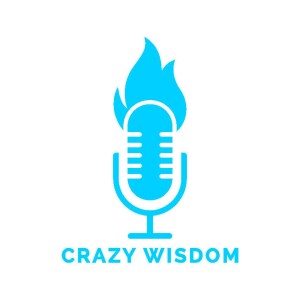
Episode #379: Tech, Tribes, and Transformation: Paul Spencer’s Patchwork Age
 2024-08-05
2024-08-05
Welcome to the Crazy Wisdom Podcast! I’m your host, Stewart Alsop, and today’s guest is the insightful Paul Spencer of Zeitville Media. In this episode, we explore Paul’s thought-provoking ideas on the Patchwork Age, a concept he developed in 2020, which examines the breakdown of large cultural institutions and the reorganization of meaning on individual and micro-tribal levels. We discuss the interplay of technology, the influence of the 90s, and the emergence of hybridized cultural forms in the 2020s. Paul also shares his perspective on the role of puritanical thought in contemporary society and its impact on community dynamics. For more from Paul Spencer, visit his newsletter at Zeitville Media or follow him on Twitter.
Check out this GPT we trained on the conversation!
Timestamps
00:00 Introduction to the Crazy Wisdom Podcast
00:23 Understanding the Patchwork Age
01:18 The Big Tent and Cultural Shifts
02:13 Nostalgia for the 90s
04:45 Puritanism and Western Buddhism
06:17 Thomas Merton's Influence
13:53 Argentina and the 90s Parallel
16:38 The Fragmentation of Micro Tribes
20:46 Modernity and the Dark Ages
22:51 The Patchwork Manifesto
25:59 The Illusion of Stability
28:51 The Debate and Simulacra
32:54 The Rise of Local Tribes
42:23 Rhizomatic Thinking and Cultural Flux
45:51 Exploring Rhizomatic Thinking
47:16 Capitalism and Schizophrenic Consciousness
50:43 AI and the Future of Relationships
59:54 The Patchwork Age Philosophy
01:06:52 Navigating Individualism in Modern Society
01:25:01 Conclusion and Final Thoughts
Key Insights
- The Patchwork Age Concept: Paul Spencer introduces the Patchwork Age, a framework he developed in 2020 to describe the breakdown of large cultural institutions and the emergence of meaning-making on individual and micro-tribal levels. This concept was inspired by his observations of societal changes during the early pandemic and highlights the need for people to stitch together various cultural elements to find personal significance.
- Impact of the 90s: Both Paul and Stewart reflect on the influence of the 90s, a time they describe as the "big tent" era, where cultural synchronization was more prevalent. They discuss how the transition from this cohesive period to the fragmented present has affected millennials, who grew up with certain expectations of continuity and stability that have since been disrupted.
- Role of Technology: The conversation underscores the critical role technology plays in the Patchwork Age. Paul points out that technology has accelerated the fragmentation of cultural institutions and facilitated the creation of micro-tribes, while also providing tools for these smaller groups to connect and find meaning.
- Puritanical Thought in Modern Society: Paul delves into the resurgence of puritanical thought in contemporary culture. He explains that in the absence of a unifying big tent, many people and communities turn to strict, puritanical codes to create a sense of order and certainty, often resulting in exclusionary or cult-like behavior.
- Cultural Hybridization: The discussion explores how the 2020s are marked by the hybridization of cultural forms. Paul and Stewart note that the blending of genres, ideas, and traditions—partly a result of the digital and analog worlds colliding in the 90s—continues to shape the way people create and interact in today's fragmented cultural landscape.
- Challenges of Micro-Tribalism: The shift from large, cohesive cultural institutions to smaller, fragmented micro-tribes presents unique challenges. Paul discusses how these micro-tribes often face internal fractionation, leading to further fragmentation and instability. He emphasizes the need for individuals to navigate this complexity creatively to find stability and meaning.
- Future of AI and Synthetic Relationships: The episode touches on the future of AI and its potential to create synthetic relationships. Paul predicts that as AI technology advances, people will form relationships with AI entities, which could lead to complex ethical and philosophical questions about consciousness, embodiment, and the nature of human connections in an increasingly digital world.
More Episodes
Create your
podcast in
minutes
- Full-featured podcast site
- Unlimited storage and bandwidth
- Comprehensive podcast stats
- Distribute to Apple Podcasts, Spotify, and more
- Make money with your podcast
It is Free
- Privacy Policy
- Cookie Policy
- Terms of Use
- Consent Preferences
- Copyright © 2015-2024 Podbean.com






